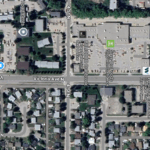Home »

DriveABLE changes promise an easier, safer road ahead
Letter to the Editor
As the minister responsible for public safety, I want British Columbians to know the facts about how we’re improving the DriveABLE program to better meet the needs of drivers while maintaining public safety.
As we get older, our cognitive abilities change – in a small number of cases, they change to the degree that driving simply isn’t safe anymore. It is very emotional and difficult to face the possibility that, after decades of driving, we may face the loss of our licences. I understand that – in fact, I went through that process with both my parents.
It is important to note that a very small number of drivers, including seniors, actually lose their licences. Of 3.1 million B.C. drivers – 84,000 of whom are over 80 – only about 1,500 take a DriveABLE assessment each year. The vast majority of seniors will continue to drive for a long, long time. About 95 per cent of referrals to take the assessment come from physicians, when they screen for cognitive impairments they believe make it unsafe for their patients to drive.
We clearly heard concerns from seniors about DriveABLE. First, some seniors felt anxious about taking the on-screen DriveABLE assessment. Second, that they want the driving assessments to be done closer to home, especially in rural communities. Several months ago, after listening to these concerns, I directed staff to look at program improvements.
Our government listened and has taken decisive actions. The biggest change means that seniors will no longer have a decision made about their ability to drive solely based on an on-screen assessment. People who do not pass this assessment will be given the opportunity to take an on-road assessment. The Province will pay for both assessments.
Final decisions will be based on a combination of the two, plus medical information provided by their doctor.
We are also in the process of developing a service-delivery model to reduce the amount of travel for rural British Columbians. As a northerner, I am acutely aware of the challenge that travelling long distances creates for seniors. Our goal is to provide services as close to home as possible through regional expansion and increased mobile services.
We also recognize that we have to do a better job of outreach and public education. Ministry staff will be working to connect with seniors and their families much earlier in the process, with a focus on how we can help prepare them for possible changes and how driver assessments work.
Staff will also work with stakeholder groups (such as medical doctors and physician groups) who will assist us in developing new materials that explain age-related driving issues, medical fitness requirements and personal planning for driving retirement.
Finally, we are going to continue to evaluate and review driving assessments. While DriveABLE is a tool used in other parts of Canada and internationally, we are always open to continued improvement. A peer review is currently underway on DriveABLE and we look forward to seeing the outcomes. We will be monitoring future research, and will be prepared to make adjustments based on what is learned.
Our goal is a simple one: to ensure seniors can keep driving for as long as it’s safe, while ensuring decisions on their ability to drive are done in the most fair and respectful way possible.
For more information on driver medical fitness in B.C., visit: www.pssg.gov.bc.ca/osmv/
By Shirley Bond
Minister of Justice and Attorney General







